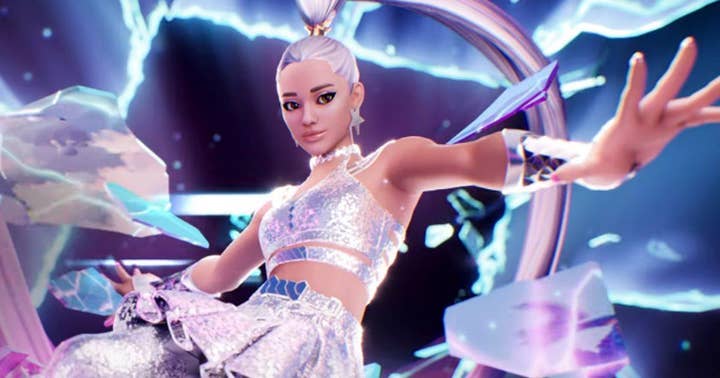Legal trends for the games industry in 2022 | Opinion
Advant's Dr. Andreas Lober and Luca Guidobaldi shares their predictions for the Metaverse, European law and more
Some legal journals look back on legal developments of the preceding year. We have taken our crystal balls and look into the future. Here are our predictions for 2022.
Metaverse
We do not know yet if and when the Metaverse will become the reality Mark Zuckerberg and Tim Sweeney are dreaming of. But we know for sure that a lot of money will be spent on this vision, and the games industry is in a pole position.
This will revive a lot of legal questions that were first discussed when virtual worlds were a hot topic: rights in virtual property, personality rights of avatars, interchangeability of virtual objects, and who is responsible if they lose their value (for whatever reason). So far, games companies tend to take the position that virtual objects have no "real world" value. This will become increasingly difficult if and when the Metaverse is a place designed for commercial activities.
It will also be an interesting conceptual and almost philosophical revolution for the whole sector: in a virtual reality environment where everything is meant to have the "look and feel" of a video game -- from a shopping session to a meeting with friends and even a concert or a night at the movies -- then games as we know them today will probably have to change and adapt in order to become the 'amusement park' of the new world: probably more entertaining, more extreme, more magic.
This will certainly bring more investments and big technology advancements, not only for the content creation and the software part but also for the hardware side; we already know that manufacturers and console makers are fighting over visors and augmented reality tools to make their users' experience grow and grow.
NFTs
Non-fungible Tokens are discussed everywhere, with arts and games being at the forefront. Many observers say they are overly hyped. We are sure that they will not live up to all of their promises -- but we are equally sure that they will not go away.

We are not yet entirely sure about how NFTs could be really innovative or particularly well-integrated (and welcome) into game dynamics in the eye of pure gamers without making video games just a mirror world for financial speculations; this would be particularly true if the publishers will chase the trend of creating NFTs that could keep value also outside a certain specific gaming environment or after the end of the game.
In fact, the earliest experiments have not proved to be promising and have raised severe criticism among gamers. Without even the need to go back to the infamous Diablo auctions, it is sufficient to look at the bad reception recently encountered by Ubisoft's Ghost Recon's Quartz and Digits to recommend a careful and cautious consideration of the issue, even just at a marketing level.
In any case, play-to-earn business models will certainly find, more sooner than later, their own market -- maybe not amongst the hardcore fans of eSports today, but certainly for some genres and some territories. The recent example of the popularity of Sky Mavis' Axie Infinity -- a fight game where the fighting characters are, in and of themselves, NFT tokens 'created' by the players that can be won and exchanged throughout the game -- is certainly a sign of the times. Apparently, in certain South East Asian countries it became also a source of income for those who could no longer earn a living in the midst of the COVID-19 pandem-ic.
This might be the moment when we have to re-examine why many online games companies were opposed to real money trading of virtual objects: legal problems when changing the game's balance for example, or randomized games mechanics becoming more problematic under gambling laws and sanctionable as unfair commercial practices.
Terms of Use / EULAs
All games companies doing business in Europe will have to revise their general terms and conditions as the EU pieces of legislation that are part of the 'New Deal for Consumers' will bring major changes for consumer protection law.
This might be the moment when we have to re-examine why many online games companies were opposed to real money trading of virtual objects
The latest guidelines that have been published by the EU Commission in December 2021 with regard to the application of this new set of consumer-related directives (i.e. the Unfair Commercial Practices Directive, the Consumer Rights Directive, the Price Indication Directive, and the Unfair Contract Terms Directive) all contain alerts specifically referring to video games, mobile games and online games.
The new EU rules, for example, affect the terms of use of all consumer contracts regulating digital services-based games or game aspects (e.g. cloud-based games) and, more general-ly, access to digital content (including downloadable games and micro-transactions for the purchase of virtual objects).
And sanctions will become more severe; just consider that fines which can be imposed for breaches -- including invalid clauses in Terms of Use or EULAs -- may scale up to 4% of the worldwide yearly turnover of the company or its group.
Unfinished products, product description, onscreen texts, and right of withdrawal
Many publishers blame the pandemic for increased difficulties in finishing AAA titles in time and in quality. Some of them seem unfinished when they are being released. Also, we are continue to see games released in 'Early Access' and seemingly remaining there forever. Here again the consumer law changes come into play, as conformity requirements are being reinforced -- which includes, for example, that the final game in general must be true to its demo version.
In particular, the new provisions mentioned in the paragraph above prohibit hidden marketing practices -- especially when targeting children and teenagers, including direct exhortations to purchase -- and urge absolute transparency for in-game purchases and price, characteristics and role of virtual items within the game dynamics and their out-of-the game value.

All games with in-game monetization will have to adapt the order process and the handling of the right of withdrawal. Many information requirements are being added as part of the 'New Deal for Consumers' and the directives and rules briefly described in the paragraph above, and how the right of withdrawal is implemented must be re-visited. How it is currently implemented in most games will not suffice anymore, and (again) fines can be imposed for breaches.
We expect more disputes around these issues, and we may possibly soon see the first class actions also in Europe. It is almost sure that consumer protection organizations will take action.
One European general counsel told us: "The practical challenges of implementing the new EU consumer law will keep games companies busy in 2022, as the devil is in the detail. Many processes need to be changed, and how to best fulfil the requirements of the EU Directives in economically and practically manageable processes is not always clear. It will take some months until we see the industry's best practices."
Free-to-play and paying with data
So far, free-to-play games could take it easy when it came to consumer law -- or at least easier. The EU Regulations we just mentioned are bound to change this as well. Paying with data will, to a large extent, be treated the same way as paying with money.
For example, players will have a right of withdrawal. This in turn means that, as a general rule, content provided by the user must no longer be used by the games publisher once the player exercised his or her right of withdrawal.
Our bet is there will be many discussions on when a user pays with data. The EU regulation says that this is pretty much always the case if the company processes more data than strictly required.
Clones and other IP disputes
IP disputes have long since been an important aspect of games law, and their importance has only grown. Legal actions against 'clones' tend to come in waves, typically when success-ful games can be programmed quickly -- and cloned even quicker. The first wave was in the '80s, the next wave was web-based games, and now there are numerous disputes on (mostly casual or hypercasual) mobile games.
Add to that disputes against cheat bots or 'cheating emulators', or against fake merchandise and unlicensed 3D printing models -- we think that IP disputes will become even more important.
All games with in-game monetization will have to adapt the order process and the handling of the right of withdrawal
We can also foresee that a lot of IP controversies will spark while the Metaverse is built and surely once it will be established, and even when VR and AR technologies will become more broadly accessible to the greater public.
NFTs will certainly make it easy for 'second lifers' dwelling in the Metaverse to have unique digital art pieces or customized design armchairs in their virtual homes and to buy personal-ized Gucci loafers for their avatars. Moreover, NFTs could be used to gain access to very special in-game events or artists' performances (such as concerts) and, for example, to enjoy previously (or otherwise) unreleased songs videoclips or movies. This scenario would of course trigger the birth of new business (and legal) models across several industries and even new means of exploitation of artworks, creative content and intellectual property assets.
Brands traditionally unfamiliar to digital forms of exploitations (such as fashion brands) will have to rearrange their IP portfolio, increase their policing and enforcement activities online and in the games world and open up to new licensing patterns and product lines. Competition with other brands will be tough and brand reputation will have to be built and preserved also among gamers.
NFTs and tokenization practices have already triggered some interesting 'clone wars' between the operators coming from the old brick-and-mortar offline world and the online blockchain addicts, artists and speculators. The recent clash between Pablo Picasso's estate and an NFT artist who had created and sold an animated version of the painter's famous 'bull abstractions' is only the tip of the iceberg.
Riot Games' director and associate general counsel Dan Nabel adds: "Game developers don't sue Apple or Google directly very often. Ubisoft did so last May, but the case quickly settled. Now, Krafton is suing Apple and Google over Garena's Free Fire games. Going forward, it will be interesting to see if other publishers will fight out battles over IP infringements in App Stores with Apple or Google."
Market dominance and platforms
Antitrust laws all over the world and their application by competition authorities are getting tougher for dominant companies. Google's been in the focus of the EU Commission for a long time, for example.
But only the Epic vs Apple case really drew the games industry community's attention to antitrust law, which prohibits the abuse of a dominant position. This will probably lead to new discussions in other cases as well -- many games companies may feel that they are depend-ent of other companies and platforms, and may test if competition law (or the EU's soon-to-come Digital Markets Act) may help them.

By the way, it is interesting to see how lately these antitrust battles are affecting not only the typical goliaths like Google, Apple or the main console manufacturers but also the platform owners from the 'indie' world like Valve, owner of Steam. Topics on the agenda range from non-discrimination to access to the infrastructure or valuable data and geo-blocking practices.
"I expect growing regulatory focus on the internet industry, including gaming," said Tencent Hold-ings'.legal director Chia-Chi Li. "There is a window for the industry to self-regulate and tell our story of healthy game play."
Youth protection beyond blood and violence
In the past, youth protection for games companies mostly meant to watch out for violence. The focus is shifting away from these 'content risks,' as most countries -- even notoriously strict Germany -- are becoming more and more liberal in that respect.
The new concern in many countries is 'interaction risks.' Very simplified, it is about players spending too much money (and time) in games -- with loot boxes being just one issue -- and being exposed to cyberbullying or other toxic behavior.
We bet that 2022 will be the year when we see the first large GDPR case against a games company
In addition, while children's privacy is particularly protected under GDPR and COPPA, some countries see the need to regulate this issue again as part of youth protection law. New regulations seem to pop up everywhere, and the regulatory landscape becomes more and more difficult as the regulations are mostly national, i.e. varying from country to country, while games companies are striving to make global products.
For example, Germany has recently revised its youth protection law, with more changes on the horizon, and the UK is tightening ist regime as well.
"My shot for 2022 is 'isolation'," Wargaming's head of business and legal practices Tamara Sakolchik told us. "Not only for quarantine purposes, but also in a sense of regulatory diversification. I bet legal requirements in key jurisdictions for video games companies will continue to drift apart, each requiring a footprint in their territory, be it a corporate, tax or regulatory one."
Data protection
Finally, all companies have been struggling with GDPR and other data protection regimes for a while. We bet that 2022 will be the year when we see the first large case against a games company.
Dr. Andreas Lober is a partner in the Frankfurt office at the law firm ADVANT Beiten. Luca Guidobaldi is a partner in the Rome office at the law firm ADVANT Nctm. Both have been advising video game companies for many years.